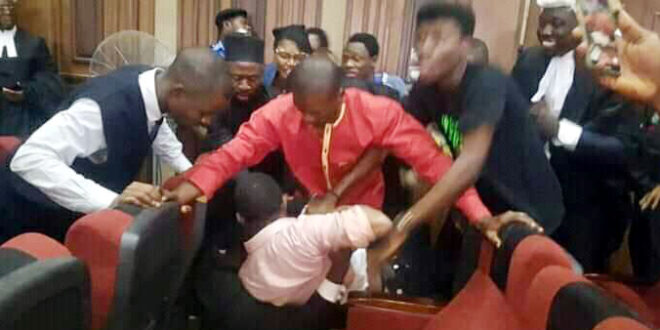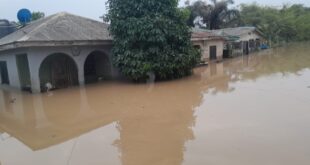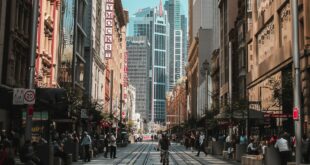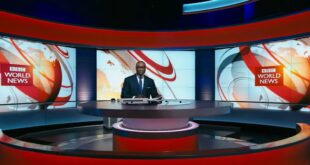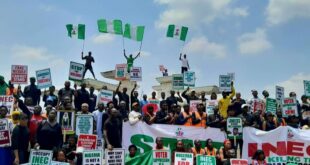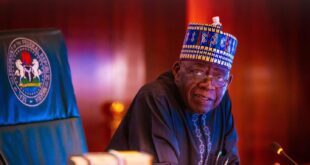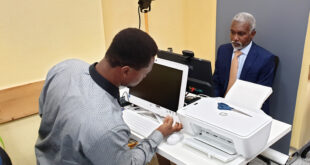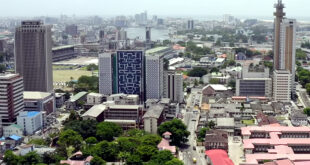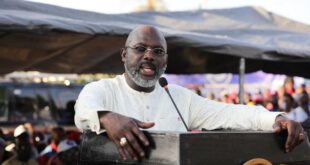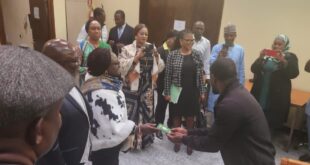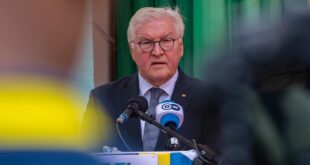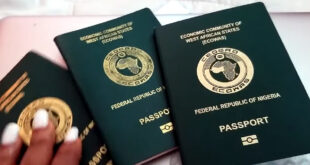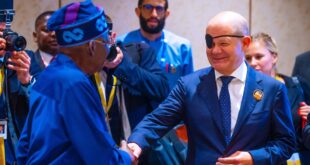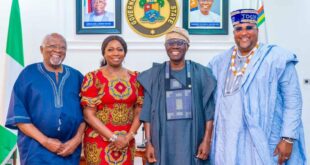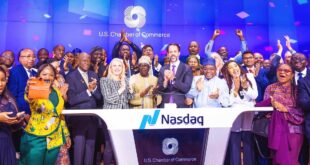The re-arrest of rights activist and journalist Omoyele Sowore right inside a courtroom in session on Friday (6 December) in Abuja has confronted Nigerians with a sad reality. It’s the reality that after the spectacular peaceful change of political power in Nigeria in 2015 through an election, the first time in the nation’s history, democracy has suffered a serious setback in their country.
Sowore was arrested alongside another activist, Olawale Bakare, by Nigeria’s intelligence agency, the Department of State Security (DSS), on 3 August for calling for public protests against the reigning insecurity, economic despondency and mass unemployment in the country.
Tagged #RevolutionNow, the demonstrations, which were to take place simultaneously nationwide, were prevented as the security agencies deployed their forces to the streets of Nigeria’s major cities – effectively aborting the revolution before it could begin.
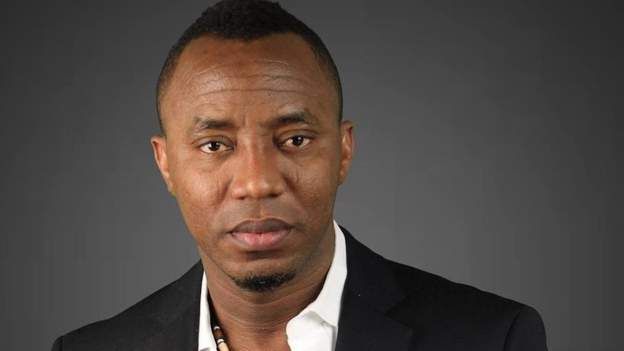
The subsequent trial of the publisher of the US-based online news agency Sahara Reporters, who was a candidate at Nigeria’s last presidential election, has exposed the fact that democracy may be in danger. He was charged with treason, money laundering and cyber stalking the President, but he denies all charges. The brazen disrespect for the judiciary by the executive branch had been evidenced by an earlier court order freeing Sowore on bail pending his trial which was not respected by the government.
This is why Judge Ijeoma Ojukwu of the Federal High Court Abuja had to issue the most recent order again freeing Sowore, giving a 24-hour deadline for the order to be effected. The order was momentarily obeyed, as Sowore was released by the DSS on Thursday, only to be disobeyed again by arresting him inside a courtroom that was in session the following day. Like Senator Shehu Sanni, a rights activist, commenting on the sad development, said, “when the temple of justice is desecrated, there is nowhere to go!”
The US State Department in reaction to the re-arrest of Sowore stated, “Respect for the rule of law, judicial independence, political and media freedom, and due process are key tenets of democracy”.

American politicians and other international personalities and organisations have criticised the Nigerian government over its behaviour in the Sowore case, which has further dented the image of the country.
Amnesty International has declared Sowore and Bakare and another journalist Agba Jalingo, detained over treason charges, as prisoners of conscience.
Now, a World Bank report, published on 2 December, had warned that Nigeria, a country of about 190 million people, risks more of its citizens sliding into poverty if it did not carry out necessary reforms.
“Nigeria risks becoming home to a quarter of the world’s destitute people in a decade unless policymakers act to revive economic growth and lift employment,” the World Bank said.

The global development financial institution pointed out that the rate of economic growth has been lagging behind demographic growth in the country. Nigeria’s economy, which is oil-dependent, is expected to grow by 2.1% in 2020 and 2021, the bank said. That’s below the nation’s 2.6% population growth rate.
“The cost of inaction is significant,” the bank said. “Under a business-as-usual scenario, where Nigeria maintains the current pace of growth and employment levels, by 2030 the number of Nigerians living in extreme poverty could increase by more than 30 million.”
Last year, Nigeria overtook India as the country with the largest number of people in extreme poverty – about 90 million, roughly half the country’s population.
The obstacles to sustainable economic development in Nigeria are well-known – inadequate infrastructure (electricity, roads, ports etc), insecurity, lack of effective policies, corruption and political instability. However, the most inhibiting of these problems to development is political instability, whose expressions include arbitrary government actions, lack of respect for the rule of law, a non-independent judiciary etc.
The Sowore saga belies the federal government’s self-proclaimed determination to promote investment, by creating a business friendly climate in the country, to tackle poverty in Nigeria. Its behaviour in the Sowore case makes the country looks like a lawless place. This can only worsen poverty in the country as investors, who are direly needed, are scared away, making the country poorer, less insecure and increasingly a threat to regional stability and peace.
Sola Jolaoso
 THE AFRICAN COURIER. Reporting Africa and its Diaspora! The African Courier is an international magazine published in Germany to report on Africa and the Diaspora African experience. The first issue of the bimonthly magazine appeared on the newsstands on 15 February 1998. The African Courier is a communication forum for European-African political, economic and cultural exchanges, and a voice for Africa in Europe.
THE AFRICAN COURIER. Reporting Africa and its Diaspora! The African Courier is an international magazine published in Germany to report on Africa and the Diaspora African experience. The first issue of the bimonthly magazine appeared on the newsstands on 15 February 1998. The African Courier is a communication forum for European-African political, economic and cultural exchanges, and a voice for Africa in Europe.

